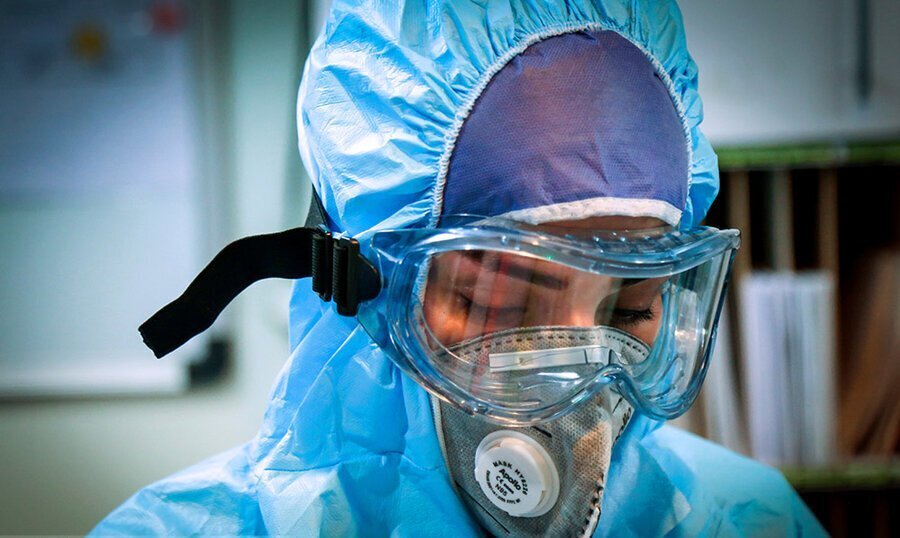Iranian researchers find COVID-19 can cause PTSD in medical staff

TEHRAN – A recent study conducted by Iranian researchers showed that the coronavirus pandemic can lead to serious psychological problems such as post-traumatic stress disorder (PTSD) in medical staff who were at the frontline of the fight against the disease.
With the rapid outbreak of COVID-19 in the early 2020s, severe physical and psychological pressure was placed on the medical staff of hospitals involved in the care of patients with the disease.
Therefore, Shirin Esmaili Doolabinejad and Mitra Safa, with their colleagues at Shahid Beheshti University of Medical Sciences; in a study give a review of the psychological impacts of COVID-19 outbreak on the mental health status of medical staff, ISNA reported.
The researchers in this study examined 311 nurses and paramedics of Masih Daneshvari Hospital. A questionnaire was used to assess post-traumatic stress disorder in these individuals and the obtained data were analyzed by statistical methods.
Posttraumatic stress disorder (PTSD) is a mental disorder that can develop after a person is exposed to a traumatic event, such as warfare, traffic collisions, child abuse, or other threats on a person's life. Symptoms may include disturbing thoughts, feelings, or dreams related to the events, mental or physical distress to trauma-related cues, attempts to avoid trauma-related cues, alterations in how a person thinks and feels, and an increase in the fight-or-flight response. These symptoms last for more than a month after the event.
Masih Daneshvari Hospital is one of the first and main centers for the treatment of COVID-19 and a subspecialty center for the treatment of lung diseases in Tehran.
During the epidemic, all wards of the hospital were dedicated to coronavirus patients. The staff of this hospital experienced severe psychological stress due to the sudden and high volume of exposure to critically ill patients, a sharp increase in working hours, and many of them got infected or their colleagues, or the loss of their family members or the community.
This high pressure and observation of the suffering of others can have a very serious impact on their mental health and functioning. Therefore, in this study, the PTSD status of the medical staff of this hospital was examined.
According to the findings of this study, 88 percent of participants showed severe PTSD, and only 12 percent got moderate PTSD scores, while none of them showed mild PTSD; which indicates the depth and severity of the psychological impact of the current crisis on the medical staff.
People in their third decade of life had the lowest rates of depression and people in their fourth decade of life had the highest rates of depression. In this study, men and women were the same in terms of PTSD incidence.
Married individuals got higher PTSD scores, more penetrating memories, and an inability to control emotion, and this is a controversial finding in this study. Also, there were no relations between the number of children and PTSD.
The study concluded that the serious spread of traumatic psychiatric symptoms in the current situation can lead to damage to the health system. While serious effort is necessary for many areas, spending time and money on the mental health of at-risk patients as well as society as a whole is a necessity.
The number of people diagnosed with coronavirus in Iran reached 273,656 on Sunday, of whom 14,188 have died and 237,788 recovered so far. Over the past 24 hours, 2,182 new cases of people having the virus have been identified, and 209 died, Health Ministry spokeswoman Sima Sadat Lari said.
Currently, 3,556 patients with coronavirus are in critical condition, she added.
FB/MG

Leave a Comment